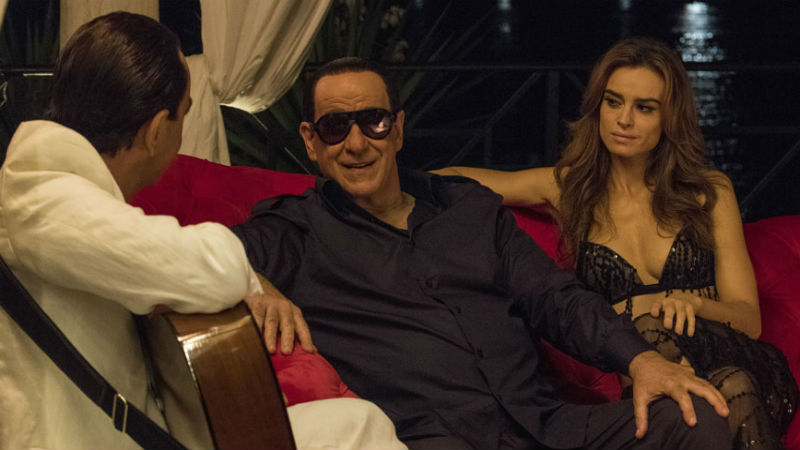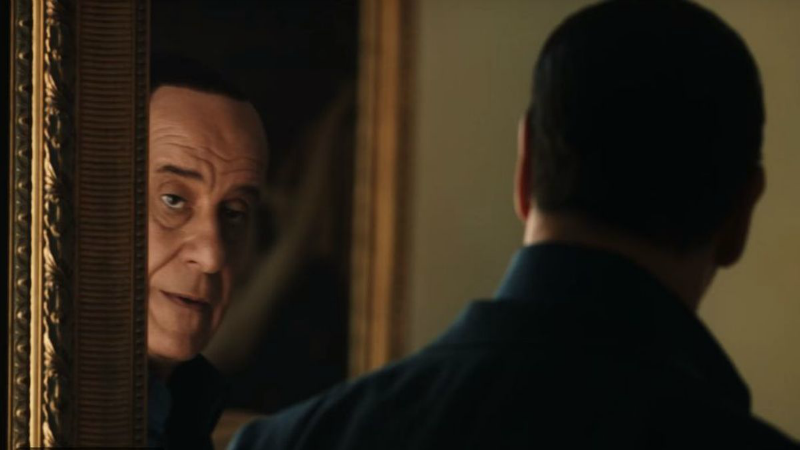In England, Diego Maradona’s goal in the 1986 World Cup semi-final against England was the epitome of foreign cheating, Latin untrustworthiness and a moment that still gets Peter Shelton shirty. In the rest of the world, it was greeted with a wave of schadenfreude. Maradona’s goal was a plucky finger in the eye against the old empire, an act of revenge for the conquest of the Falklands/Maldives – or as old uncle Alfredo in Paolo Sorrentino’s new film The Hand of God calls it: ‘a revolutionary act.’
Maradona was more than a hero to Neapolitans, as Asif Khapadia’s Netflix documentary brilliantly delineated, he was a god. For young Fabietto (Filippo Scotti), the speculation around his imminent arrival is driving him to distraction. And Fabietto has enough distractions as it is. He has a sexy auntie Patrizia (Luisa Ranieri) who along with suffering domestic violence and mental health issues has a Kenny-Everett-like habit of her clothes falling off. In his parents, Saverio and Maria (Toni Servillo and Teresa Saponangelo) he has a pair of comedians who love practical jokes and juggling oranges. He has a brother who is trying out for the new Fellini film and school to finish, but above all he has the possibility that Diego Maradona might be coming to Napoli.
All of these are depicted with Sorrentino’s characteristic verve for caricature. A fat aunt sits eating whole mozzarellas dressed in a fur coat and spouting foul language to the amusement of the family. There’s an unremitting and at times grating vitality to everything, but this comes to an abrupt and tragic end, halfway through the film. The event is based on a real life family tragedy and it soon becomes clear that the film sits firmly in the tradition of Italian autobiography and to some degree nostalgia: films like Giuseppe Tornatore’s Nuovo Cinema Paradiso and Federico Fellini’s Amarcord. The latter is the ghost at every Italian director’s banquet. If he were to do a Yesterday, I honestly wonder what would remain of contemporary Italian cinema. He even gets an offscreen cameo.
The problem is Federico Fellini had taste and Paolo Sorrentino doesn’t. He loves his shots, but not his scenes; his caricatures but not his characters; sentiment but not emotion; he loves nipples more than he loves sex. Following great personal tragedy, the film becomes a Bildungsroman as Fabieto struggles to find his way past loss and into film directing. This despite the fact that other than an unwatched video cassette of Sergio Leone’s Once Upon a Time in America (1984), he’s not shown any particular interest in film beyond feeling that ‘reality is disgusting’. The worship of Maradona likewise gets shunted off as Fabieto turns off the TV mid game. In the end, we get 15 different endings, any one of which would have done, but taken all together suggest an artist who doesn’t know where or how to stop.
The Hand of God is head and shoulders better than Sorrentino’s most recent films – especially the barely released Loro and the arthritic Youth – and Sorrentino fans will find a lot to enjoy. It will also play well in Italy because there is no doubt that Sorrentino understands and successfully gets under the skin of the confounding and amazing city of Naples. But Sorrentino remains a frustrating figure, unquestionably talented, beguiling at times, but whose florid handwriting barely disguises the fact he has very little to actually say.
The Hand of God premiered at the Venice Film Festival. It shows in October at the BFI London Film Festival. In cinemas on Friday, December 3rd. On Netflix on Friday, December 17th.










